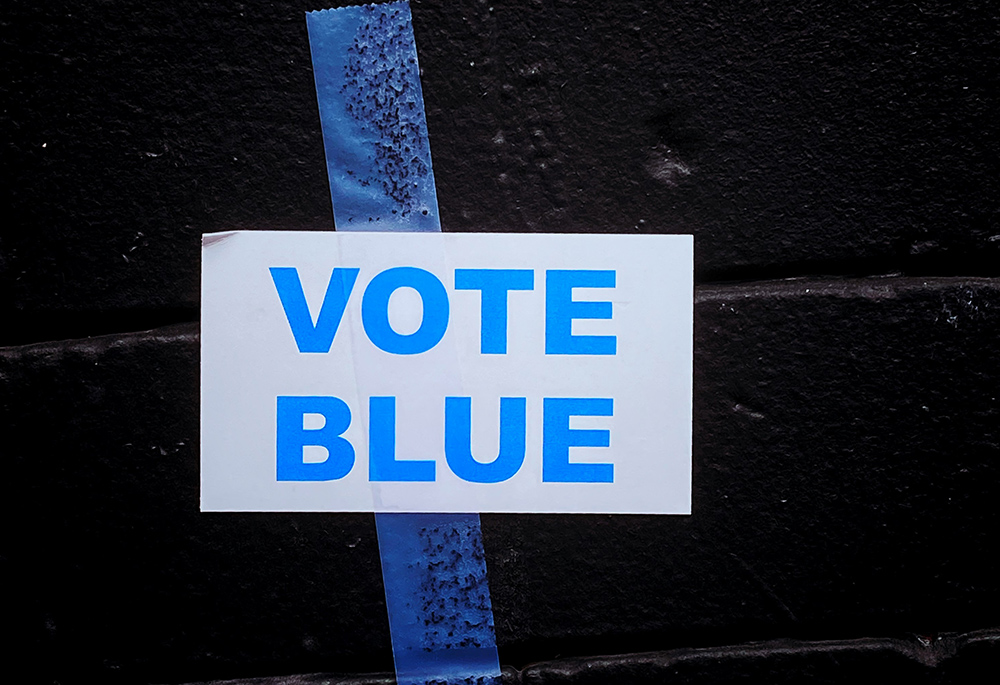
(Unsplash/Jon Tyson)
Science is amazing and our civilization has benefited enormously from the advances science has made. Its intellectual authority is virtually unparalleled in the modern academy. But, when non-scientific claims cloak themselves in scientific authority, or science claims to reach beyond the limits imposed by its own methodology, you have scientism. And the left falls for it.
The diagnosis of what ails the Democratic Party continues today as we confront another of the left's intellectual habits that must be cauterized: scientism. Last week, we looked at a parallel to the Democrats' devotion to scientism — how the left's enforcement of cultural orthodoxies turned into heresy-hunting, alienating millions of voters who are more culturally conservative.
Let's take economics. In his brilliant book We Built Reality: How Social Science Infiltrated Culture, Politics and Power, philosopher Jason Blakely looks at how the social sciences, including economics, deforms into scientism.
"Like the dashboard on a car, economic indicators allowed ordinary citizens to imagine an invisible engine vitally transporting society and all its members toward the goal of prosperity," Blakely writes. He continues:
What was rarely recognized was the fact that these indicators contained thousands of unseen choices and evaluations about what was socially and politically relevant and what was erasable from discussion. Persistent and entrenched poverty, for instance, did not figure prominently in the dominant scientific and descriptive indicators of this thing called "the economy"; neither did radically unequal access to the basic goods needed for human flourishing.
So, when a politician says, "It's the economy, stupid," the clarity of the statement hides a wealth of moral ambiguity. A rising gross domestic product may reflect the accurate measurement of certain things, but those things may hide all sorts of human struggle and suffering.
Blakely points to an influential 1953 essay libertarian economist Milton Friedman penned equating economics with physics. In both fields, the researcher makes unrealistic theoretical assumptions, but both were capable of producing "scientifically predictive knowledge." Alas, physicists can tell you with precision where an eclipse will occur 500 years hence, and most economists did not predict the economic collapse of 2008.
Scientism also shoulders part of the blame for the Democrats' persistent inability to convince fellow Americans of the moral necessity of confronting climate change. Science may detail the dreadful effects of global temperatures rising, but it can't explain to a hard-working miner why he should bear the brunt of our societal reckoning with climate change, or how a particular policy will make sure he and his family will find a good-paying job in a green economy. Nor can science apportion responsibility fairly. These are moral questions, not scientific ones.
The left should know better. In 1994, Richard Herrnstein and Charles Murray published The Bell Curve which argued that differences in IQ between the races were in part attributable to genetic differences. They assembled a mountain of scientific studies to prove their case. The New Republic published both an excerpt from the book and many responses to it.
Among the latter, my favorite came from the magazine's literary editor, Leon Wieseltier, who attacked the book's presumption at its root: "For the question of the bearing of science on life is not a scientific question. It is a philosophical question.
"There is not a graph in the world that will explain the place of graphs in the world."
Advertisement
When the humanities morph into the social sciences, we are all the loser and the lesser for it. In terms of democratic politics, and Democratic Party politics, are not candidates trained in the humanities more likely to possess the rhetorical skill and the intellectual capacity for making an argument that resonates with people's lived experiences? There is a reason "technocrat" is considered an insult.
Related to scientism is credentialism, the idea that expertise is best trusted when pronounced by those who can rattle off an impressive list of academic credentials. This counts in certain circles, but the ballot box is not one of those circles.
In 2020, a documentary entitled "Unfit: The Psychology of Donald Trump" aired, and it was scary. But at the beginning, when each psychologist or psychiatrist came on the screen, even when George Conway came on, the producers listed the college and post-graduate university the person attended. In some cases, it listed the books the person had written. Did no one involved in producing this realize how off-putting that would be for millions of Americans?
Scientism and credentialism reinforce the "diploma divide" that now defines American politics, with the Democrats on the side with more degrees and fewer votes. The Republicans appeal to those without college degrees and determine the results of the elections.
The problem is twofold. First, scientism and credentialism are invoked to end a conversation not to start or continue one. That doesn't help develop the skills of persuasion that are at the heart of party-building. Second, the invocation of "evidence-based data" implicitly suggests that anyone questioning "the science" or pointing out the provisional, changing nature of scientific evidence, is an obscurantist or a rube. It quickly descends into condescension.
If the Democrats want to reach out to working-class voters effectively, they need to rework how they invoke science. They need to be mindful of how scientism distorts public discourse. And they need to restrict the listing of academic credentials to academic circles. If politicians want to know how the economy is doing, they need to consult the bartender as much as the economist.







